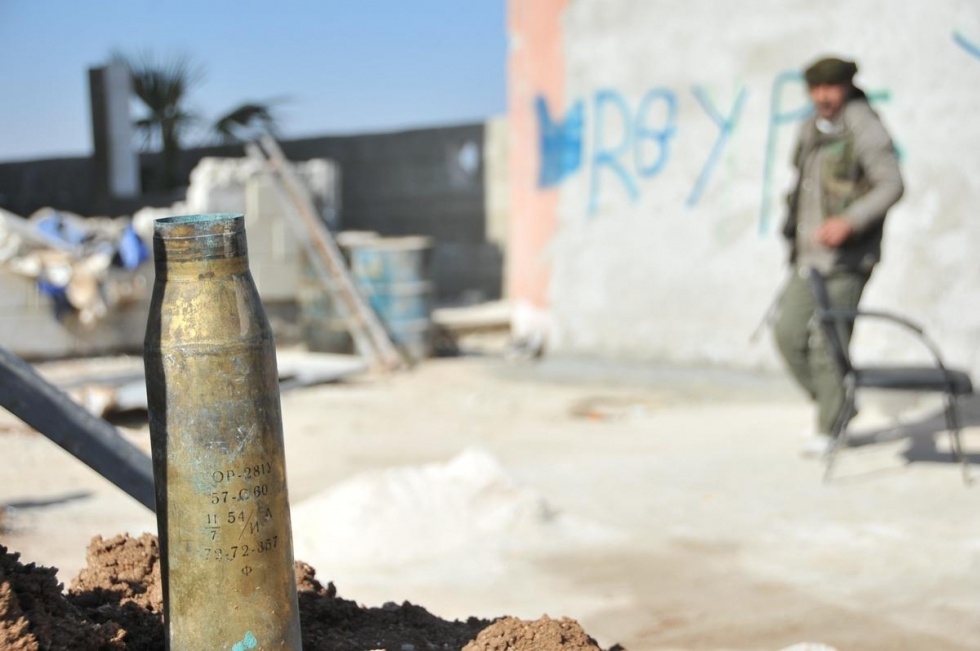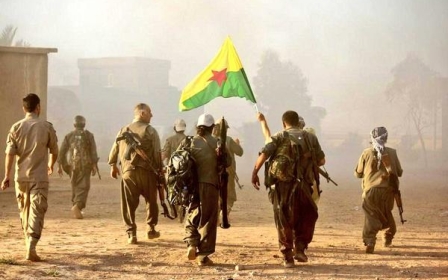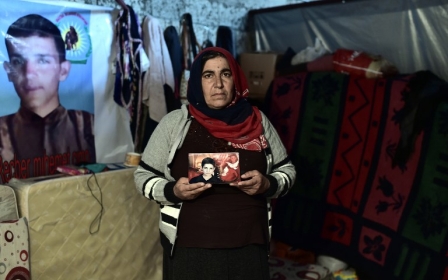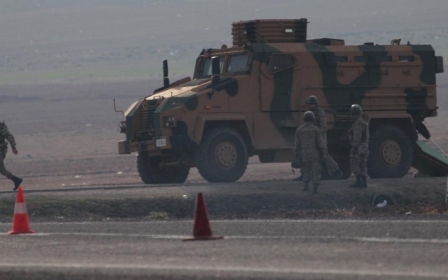IS remains strong despite 'devastating' Kobane blow, say analysts

The Islamic State group has suffered "devastating" blows in Syria's Kobane and on several Iraqi fronts, but analysts warn such victories in the fight against the militants cannot be replicated everywhere.
Kurdish fighters backed by US-led airstrikes this week ousted IS from most of Kobane, after a four-month battle whose symbolic importance had far outgrown the small Syrian town's military value.
Simultaneously, Iraqi forces flushed the militants out of their last urban bastion in the eastern province of Diyala, further shrinking the borders of their self-proclaimed "caliphate".
"Kobane shows that intense air strikes concentrated in a small space can succeed in containing IS," said Aymenn Jawad al-Tamimi, a Shillman-Ginsburg fellow at the Philadelphia-based Middle East Forum.
"The airstrikes were devastating. IS lost a lot of people in Kobane and they're not even trying to spin it," said Patrick Skinner, an analyst with the Soufan Group intelligence consultancy.
In a rare audio message released on Monday, IS spokesman and top leader Abu Mohamed al-Adnani made no reference to Kobane, which both sides had made the nexus of their military efforts.
According to observers, the militants lost around 1,200 fighters in the battle of Kobane and some US officials have said that US-led airstrikes killed 6,000 militants since the air war started in August.
Over the past month, Iraqi Kurdish forces have also scored significant victories, cutting the group's main supply lines between their hub of Mosul and the Syrian border.
While the noose is tightening on Iraq's second city - IS's largest urban stronghold - the capital Baghdad is breathing more comfortably following the "liberation" of Diyala province.
"The group has definitely lost momentum. That goes against (the) notion of continual expansion" it is trying to project, Tamimi said.
"Generally, IS is either losing territory, not making advances at all, or having to recover territory," as is the case in the strategic Iraqi town of Baiji, which the militants lost in November.
'Strongholds still intact'
Compounding IS's woes is the resurgence of its militant rival in Syria, the Al-Qaeda affiliate Jabhat al-Nusra.
"IS has been under such concentrated pressure - they're really having some bad times - while Jabhat al-Nusra has been under the radar," Skinner said.
He said al-Nusra had been successfully coopting other rebel outfits and positioning itself to become the most influential group whenever the "moderate" forces are launched into the fray.
However, while Western aerial might played a crucial part in Kobane and northern Iraq, recent victories for anti-IS forces were achieved in areas where the ground offensive was spearheaded by homegrown troops.
In Kobane, the Kurdish People's Protection Units (YPG) did the grunt work, while in northern Iraq the Kurdish peshmerga are leading the way and in Diyala Iran-backed Shiite militias were omnipresent.
"IS control over its most important strongholds in Syria and Iraq remains intact and there is a lack of a local military force to challenge IS in places like Mosul," Tamimi said.
The United States and other powers are training the Iraqi army, and Sunni groups opposed to IS are preparing for battle, but analysts said the process required more time.
'Air strikes not enough'
Washington and Baghdad have repeatedly voiced confidence that the current strategy was bearing fruit and would eventually defeat IS.
But some say foreign troops on the ground are necessary to crack IS's biggest strongholds.
"We don't think there is much progress because airstrikes are not enough," a senior Middle Eastern official told AFP on condition of anonymity.
Speaking after last week's anti-IS coalition conference in London, the official said his country, which is involved in the air campaign, had offered troops but was turned down by Baghdad.
"We stress that the worst thing that could happen is for Mosul... to be retaken thanks to US raids and a ground offensive led by Shiite militia and Iran with no Sunni involvement."
Skinner pointed out that "it took 10,000 US marines to clear Fallujah (10 years ago), which is a fraction of the size of Mosul."
Figures tell a similar story in Syria.
"It took the YPG on the ground and US-led coalition from the air 112 days to expel IS from Kobane, which covers just six square kilometres," said Rami Abdel Rahman, director of the Syrian Observatory for Human Rights, a UK-based monitoring group.
"The IS controls some 35 percent of Syrian territory... How long will it take to expel IS from Raqa, Deir Ezzor, and so on?"
IS issues new threat to kill Jordanian pilot
Meanwhile, IS said they will execute a Jordanian pilot "immediately" if Amman does not hand over a female suicide bomber by sunset Thursday, as Japan waits in anguish for news of a journalist the militants are also holding.
In a new audio recording, a voice identifying itself as Japanese freelancer Kenji Goto says his captors will kill Maaz al-Kassasbeh if an Iraqi woman on death row in Jordan is not handed over by the end of the day.
"If Sajida al-Rishawi is not ready for exchange for my life at the Turkish border by Thursday sunset, 29th of January, Mosul time, the Jordanian pilot Maaz al-Kassasbeh will be killed immediately," Goto said, in an unverified audio message distributed by IS-linked Twitter accounts.
It was not clear from the message if either Goto or Kassasbeh would be freed.
The recording was reported by monitoring group SITE Intelligence.
Japan's Chief Cabinet Secretary Yoshihide Suga told journalists the recording seemed genuine.
"We are in the process of confirming it, but it is highly probable that the voice is Mr Goto's," he said.
The apparent communication breaks an anxious silence from IS since their previous 24-hour deadline for the handover of Rishawi expired at around 1400 GMT Wednesday.
Amman had offered to free the Iraqi woman, who was convicted for her part in triple-hotel bombings in the Jordanian capital in 2005 that killed 60 people, if the IS group released their airman.
"Jordan is ready to release the prisoner Sajida al-Rishawi if the Jordanian pilot is freed unharmed," state television quoted a government spokesman as saying Wednesday.
"From the start, the position of Jordan was to ensure the safety of our son, the pilot Maaz al-Kassasbeh," it added.
The government spokesman made no mention of Japanese hostage Goto.
Jordanian Foreign Minister Nasser Judeh wrote on Twitter shortly before 1500 GMT on Wednesday that his country was still awaiting confirmation that the pilot was safe.
New MEE newsletter: Jerusalem Dispatch
Sign up to get the latest insights and analysis on Israel-Palestine, alongside Turkey Unpacked and other MEE newsletters
Middle East Eye delivers independent and unrivalled coverage and analysis of the Middle East, North Africa and beyond. To learn more about republishing this content and the associated fees, please fill out this form. More about MEE can be found here.




